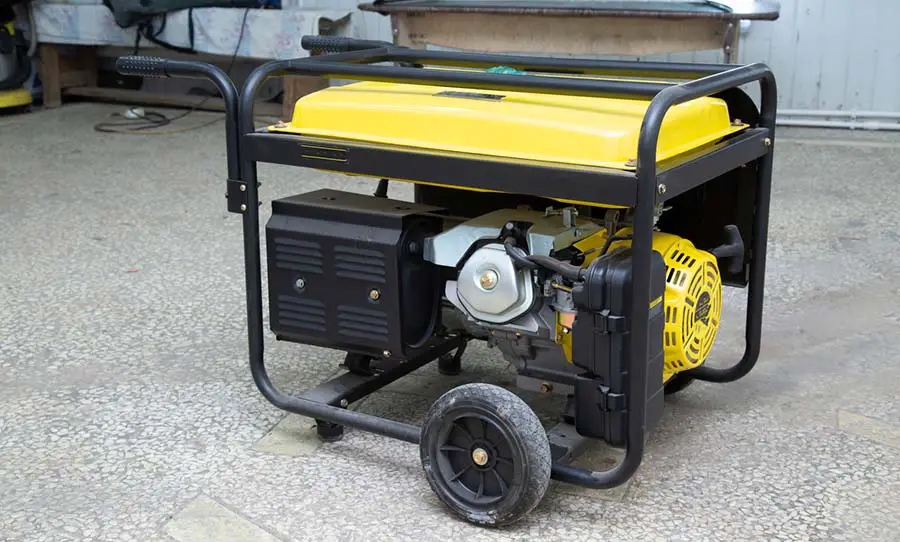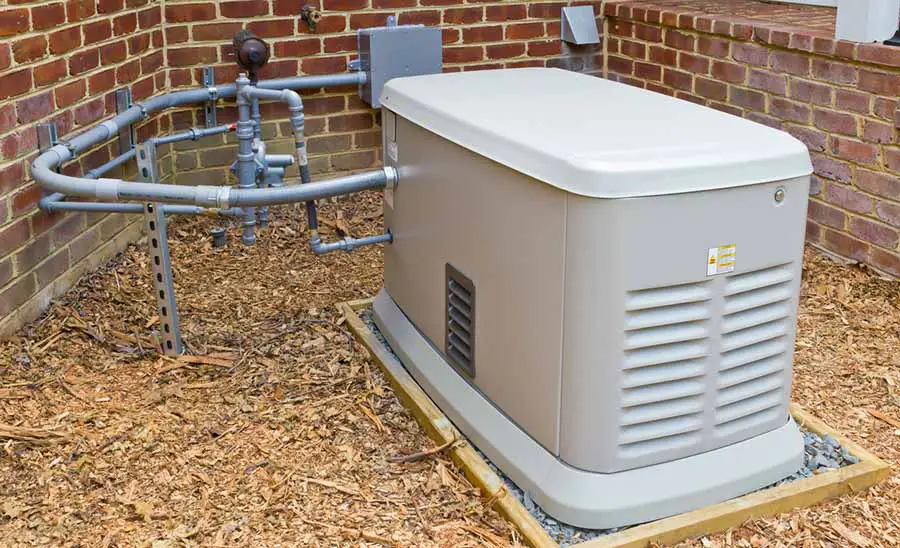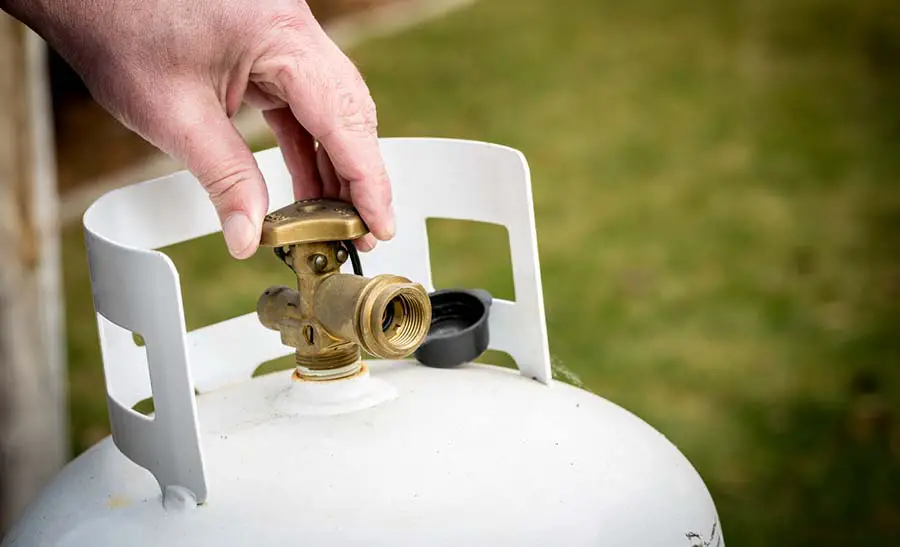
Generators have gone past the days where there were only diesel or gasoline versions to choose from. Now we have the option to choose from natural gas and propane-powered generators as well. One important factor that a generator owner should know is the generator’s fuel consumption and whether one has a cost-saving over another.
If you are considering a propane-powered generator, you may be interested in the fuel consumption of a propane generator and how it compares to other fuels.
A propane generator will consume about 3 gallons of propane per hour of use. A generator’s fuel consumption depends on the size of the generator and the power demand that it must handle. Thus, the average fuel consumption could be lower or higher than in a real-life situation.
Understanding how much fuel a particular generator uses is essential information to know when you plan to install a generator. The cost of the generator is not the only factor to consider, but also the long-term costs in fuel to keep the generator running for an extended period.
How Much Fuel Does a Propane Generator Use?
| Propane Generator Capacity | How Long the Generator Will Run |
| 500 gallons | 7 days |
| 750 gallons | 10 days |
| 1000 gallons | 14 days |
It is important to know the fuel consumption of a generator for two main reasons. The first is that you can plan how much fuel to have on hand for your generator to cater for extended power outages, and the second is so that you can be aware of how much it is going to cost to keep the generator running and your home powered.
Propane generators can be powered with propane cylinders, but these will only keep the generator running for a short amount of time. For this reason, most people who use propane generators will have a large capacity propane tank installed to keep the generator running for a long time without interruption.
These propane tanks can be installed either above ground or below ground. The generator’s fuel consumption and your power needs will determine the size of the tank that you will install. Most propane tanks, however, range between the capacity of 500 gallons and 1000 gallons.
The fuel that a propane generator will use will depend on the power load that you place on the generator, so the numbers quoted here will be averages to give you an idea of the consumption as a ballpark.
To get a more accurate figure of the fuel consumption, you would need to get a generator professional to inspect your home and your power requirements.
This type of inspection will give you an accurate fuel consumption figure to work from to specify the correct capacity generator as well as the fuel needs for your particular power requirements.
On average, you can expect a propane generator to consume about 3 gallons of propane fuel per hour. If you have installed a 500-gallon propane tank to fuel your generator, you will be able to power your household for approximately seven days on the capacity of the tank.
This would be seven days of continuous use, running the generator 24-hours a day at maximum load. If you conserve energy during the outage and switch off unnecessary electrical items, you could extend this usage by a day or two.
Installing a more significant, 1000-gallon capacity tank would give you double the duration of generator use, powering your household for up to 14 days of continuous use.
What Is the Advantage of Large Propane Tanks?
Installing the large capacity tans will give you several advantages over having smaller portable tanks to fuel your propane generator.
- You will be able to run your generator continuously for a long time without interruption.
- Cost-saving when buying in bulk makes more financial sense than paying more per gallon for a smaller quantity.
- Mitigate fuel price increases. You can buy in bulk when the propane prices are low, thus maximizing the saving you can make when the prices are down.
Are Propane Generators Efficient?

You must compare the efficiency of propane generators against generators that use other fuel types to determine the fuel efficiency and cost-efficiency of the generators.
From a fuel efficiency point of view, propane generators are more than twice as efficient on fuel as natural gas generators. This means that a propane generator will use half the amount of fuel to produce the same amount of electricity under the same load as a generator powered by natural gas.
The advantage of piped natural gas is that it is cheaper than propane, and because it is a pipe connected to your home, the supply is nearly endless unless the line is damaged somewhere upline from your location. Natural gas will still be pumped into the home during a power outage, as this does not affect the natural gas supply.
Propane generators are not as fuel-efficient as gasoline or diesel-powered generators. Gasoline generators and diesel generators are about a third more efficient than propane generators.
What makes propane generators a viable choice is that the cost of propane is generally cheaper than the price for diesel or for gasoline. Even so, the fuel cost for a propane generator will still generally be more than that for a generator powered by diesel or gasoline.
Other Cost Factors of Propane Generators
Fuel consumption is not the only cost factor that you must consider regarding propane generators. Propane burns cleaner than any of the other fuels that generators use. This results in less harmful emissions from the exhaust of the generator. This is a better option for the environment and poses fewer health risks for the home’s residents. Because propane burns cleaner, there are also fewer carbon deposits inside the engine itself than burning other fuels.
The major downside to propane generators is that the engines are significantly more complicated than diesel or gasoline-powered motors. This makes maintenance on these engines complex and generally something that the generator owner cannot do themselves.
This complexity pushes up the maintenance and repair cost for propane generators, making them unsuitable for rural settings where service centers and a qualified service technician will be less accessible.
For these remote applications, diesel or gasoline generators are better options due to more readily available parts and because owners can do most repairs themselves.
Other Advantages of Propane as Generator Fuel

Propane has several advantages over other fuel types for generators. Here are a few of the benefits of propane as a generator fuel:
- Expected lifespan of up to 12 years
- Does not degrade and continues to work in cold temperatures
- Easy to find and purchase
Propane has a longer lifespan than most other generator fuels, and you can store propane for much longer without it degrading and becoming unusable.
Gasoline and diesel have additives included in the mix to stabilize the fuel. However, the fuel and these additives have a relatively short lifespan compared to propane before they degrade and potentially damage your generator’s engine.
Diesel, in particular, does not handle freezing temperatures well, and the fuel begins to thicken and stops flowing through the fuel lines. Propane does not suffer this malady in cold weather and continues to work well in temperatures well below freezing.
If your residence is in a location where the winter temperatures regularly get below freezing, then the best choice for a generator for your home would be a gasoline generator or a propane generator simply because the fuels can handle the low temperatures.
Conclusion
Propane generators may not be the most fuel-efficient of generators, but their advantages in certain circumstances make them a viable option. The benefits they offer include reduced noise levels, reduced emissions, and the fact that the fuel handles cold temperatures better than most other fuels.
Propane generators are more suitable for locations where you can easily access maintenance personnel and propane fuel. The generators are complicated and require specialized knowledge to service and repair them.
Propane as a fuel may be less accessible in outlying areas, adding to its unsuitability for remote applications. However, for urban and suburban use, propane generators would still warrant investigation as a viable alternative.

